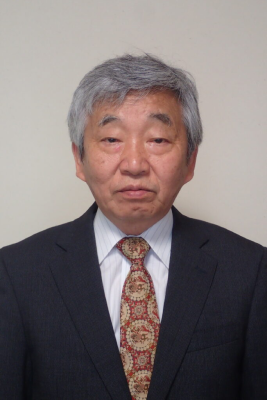Message from the President

I am Hideshi Ishikawa, elected President for 2024-25 at the 90th General Meeting of the Japanese Archaeological Association held this 25 May. I would like to offer my greetings upon assuming office.
First of all, I would like to thank President Hideto Tsuji and the other members of the Board of Directors who managed the previous term. The past four years have been a time of disaster for Covid-19, and I would like to thank you all for doing your utmost to overcome the sudden emergence of a challenging environment.
Now, the Japanese Archaeological Association was founded on 2 April 1948, shortly after the World War II. Some feared that it might be a rebirth of the three civilian organizations of the archaeological community, which were merged into the Society for the Study of Japanese Ancient Culture under a national policy in 1941 during the war, as they had clear memories of the merger. However, the Japanese Archaeological Association was first realized as a post-war democratic and academic organization when Tatsuo Morito, Minister of Education, who led the establishment of the Science Council of Japan as the nucleus of the new post-war academic system, and Hideo Inumaru, Director of the Humanities Research Section, Science Education Bureau, Ministry of Education, encouraged the archaeological community to join the Society. Since then, this year marks the 76th year of its existence, during which time it has been active as Japan's leading national society for archaeology.
However, today, both in terms of archaeology itself and in the social environment surrounding archaeology, a different situation has emerged and severe challenges are piling up. I feel that we are now even being asked how we can respond to these challenges.
I first attended the General Assembly held at Toshima Public Hall in Ikebukuro in the spring of 1974, when I entered university, so surprisingly, my involvement with this society has now lasted half a century. I became a member in 1982, in my third year of a PhD course, and since then I have closely followed the activities and management of the Japanese Archaeological Association, as there have always been several board members around me. In 2002, in the midst of the response to the early and middle Paleolithic problem, I joined the Board of Directors with only seven votes, as if by accident. From then until 2017, I served as a board member (general secretary and vice-president) and auditor, with a two-year blank in between. I have since left the Board for three terms and intend to graduate after making a small contribution to the management of the Association for another short period of time.
Sugihara Shosuke, who ran around establishing the Japanese Archaeological Association under Inumaru immediately after the defeat, was my supervisor during my university days, and he repeatedly said to us "We at Meiji University have little to offer in the way of scholarship. That is why you should contribute to the academic world, and you will eventually become a force to be reckoned with.” Well, these are auspicious words for Sugihara, who was often shunned by academics for his intransigence, but I remember those words now.
In the 1980s, there were people who became board members but only came for lunch in the spring and autumn, and others who were nominated by the community but never attended a board meeting. They probably thought it was an honorary position. But in fact, as was the case then, the board today is engaged in a far greater depth of practice and drudgery than it was then.
As you can see, the new Board of Directors is a truly elite group from all over the country, with a great deal of practical experience, so even someone like me will somehow be able to hold the office of President. However, the Society does not belong to the Board of Directors. It is only through the opinions and activities of its members that the society can exist and fulfil its responsibility to society. Recently, various issues have been intertwined in a multilayered manner, ranging from the serious issues at hand, such as the fact that the number of young people joining the Society is decreasing at a rate of more than 1.5% per year, resulting in a decline in membership beyond the age structure of Japan, to trends at the national and governmental levels, where the tendency to properly utilize science in policy implementation has been diminishing considerably. While unravelling and fleshing out such issues, we have to make use of the opinions of our members to make improvements.
Although I still think of myself as a boy at heart, I will be 70 years old this autumn, so in reality I am a genuine old man. However, I would like to take a few more moments to think and work with you on how we can revitalize our archaeology, confronting the increasing severity of archaeology itself and its environment. I look forward to working with you.
President of the Japanese Archaeological Association
Hideshi Ishikawa
